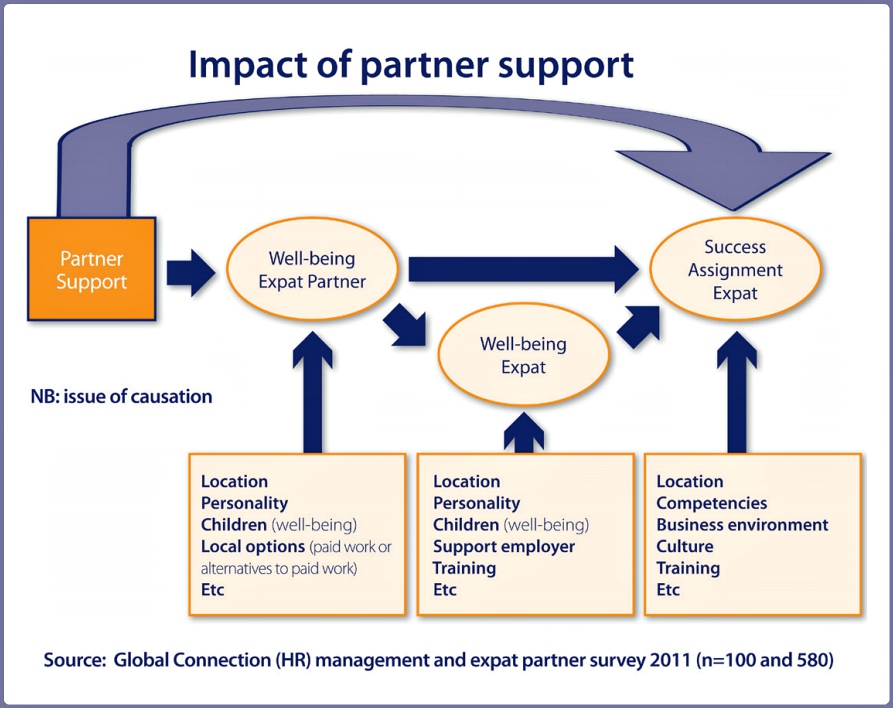The ultimate long-term goal of partner support is to increase mobility. But how do you determine or justify your annual budget for spousal support? Together with our clients, we have developed a formula and tools for estimating the annual ROI of partner support.
Research
Since 2007, Global Connection has been conducting research to determine the relationship between partner support and mobility (long term) and the success of the assignment (short term). Tools have been developed to measure these relationships.
Mobility
Being able to get the right person in the right place can be invaluable. Surveys have shown that mobility clearly improves with appropriate spousal support.
Impact on assignment success
Research has shown that there is a correlation between the extent to which the partner is supported and the success of the expatriation. Taking into account the issue of causation, conservative estimates suggest that for every 1% increase in meeting the spouse’s total need for support, there is a 0.5% increase in the success of the expatriation. A ‘successful expatriation’ is defined as being at least equal to the costs of an expatriation.
Calculation example
For example: the annual cost of an expatriation is 200,000 euros. The expat partner uses a service that increases the extent to which his/her needs for support are met by 5%; the success of the expatriation increases by 2.5%. In this example, the return is 5,000 euros per annum.
Maximising by personalising
The ROI can be maximised by providing personalised support packages that fit the partner’s needs (see also Having a ‘support plan B’).






